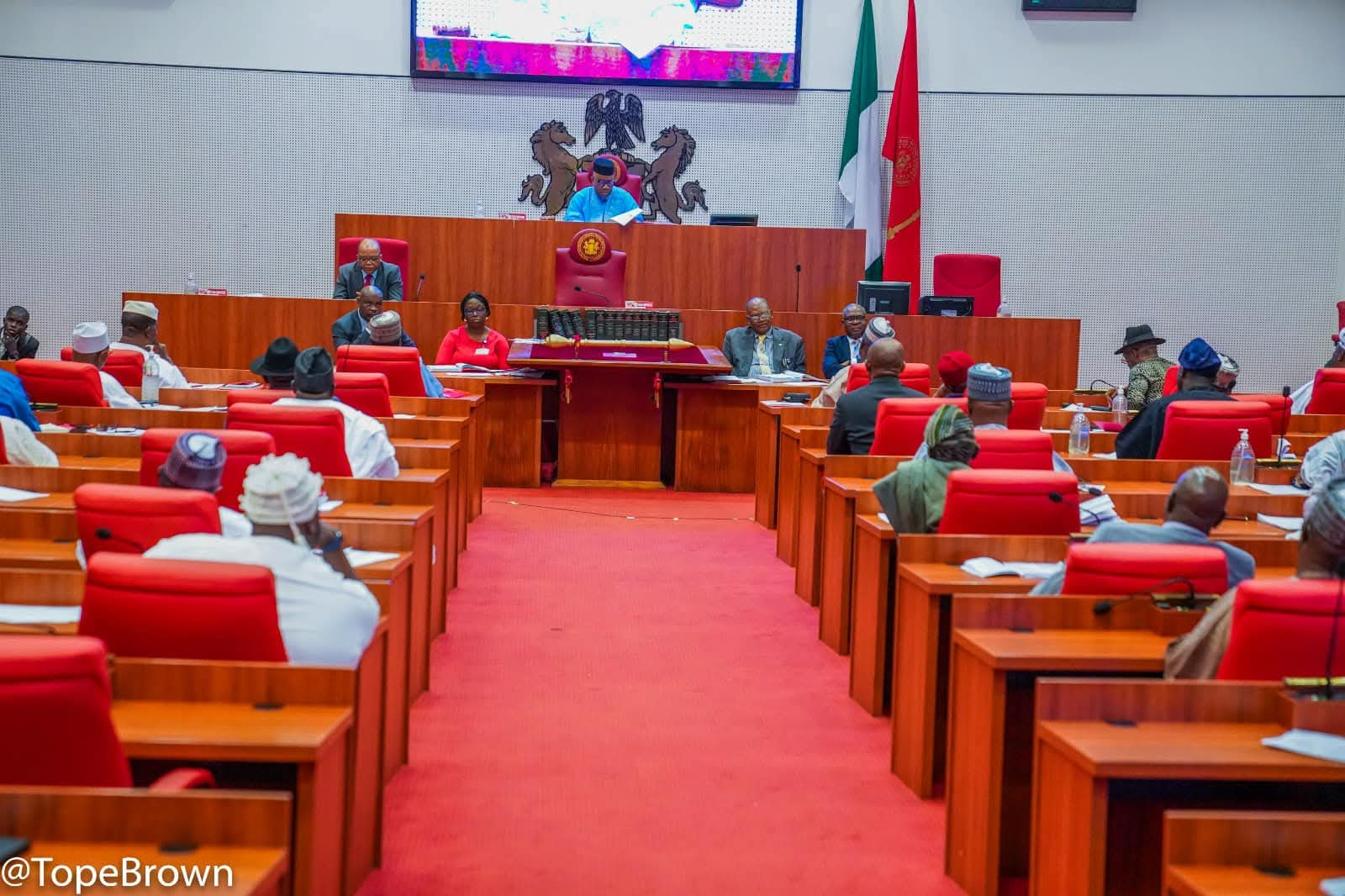Senate gives NNPCL 21 days to address queries of N210trn unaccounted funds
Senate gives NNPCL 21 days to address queries of N210trn unaccounted funds
By Joe Udo
ABUJA (CONVERSEER) – The Nigerian Senate has issued a 21-day ultimatum to the Nigerian National Petroleum Company Limited (NNPCL) to respond to audit queries over N210 trillion in unreconciled funds contained in its financial statements, raising fresh concerns over transparency and accountability in the management of the country’s critical oil and gas resources.
The order came on Monday after NNPCL Group Chief Executive Officer, Bayo Ojulari, appeared before the Senate Committee on Public Accounts (SPAC), chaired by Senator Ahmed Wadada (Nasarawa West), following his failure to honour four previous invitations. The committee is examining 19 audit queries raised by the Office of the Auditor General for the Federation, covering NNPCL’s financial operations between 2017 and 2023.
Breakdown of the N210 Trillion Queries
According to Wadada, the disputed amount comprises N103 trillion in liabilities and N107 trillion in assets listed in NNPCL’s audited financial statements over the seven-year period. While clarifying that the committee had not declared the funds “stolen or missing”, he said it was constitutionally bound to scrutinise the accounts of public entities.
“The committee has not said the N210 trillion was stolen or missing. What we are doing is in line with our constitutional mandate to examine the audited accounts of public institutions and ensure Nigerians know how public resources are managed,” Wadada said.
NNPCL CEO Requests More Time
Ojulari, who was appointed barely four months ago, apologised for failing to honour earlier invitations and asked for additional time to review the issues raised. He argued that a deeper internal audit was necessary, given the complexity of the figures involved and the fact that he inherited them from previous management.
“I still need time to do further digging. Your explanation now changes my perspective about the issues,” Ojulari told the lawmakers, requesting four weeks to respond fully.
However, the committee granted him three weeks instead, insisting that the matter was urgent and required prompt attention. He is expected to return with written submissions and appear again alongside key members of NNPCL’s management team.
Lawmakers Emphasise Transparency
Several lawmakers stressed the importance of transparency in the operations of the state-owned oil company, which controls Nigeria’s most valuable economic asset.
Senator Victor Umeh (Anambra Central) said: “NNPCL is in possession of Nigeria’s economic prosperity. We must ensure transparency and accountability in everything it does.”
Senator Babangida Hussaini (Jigawa North West) described the audit issues as “germane and critical to our national economic health”, while Senator Tony Nwoye (Anambra North) urged fairness in assessing the audit findings, warning that audit reports sometimes contain errors.
Wadada reiterated that the committee’s focus was not punitive but constitutional. “This committee is only concerned with accountability and due process. The NNPCL will be given ample opportunity to explain these records before any conclusion is reached,” he said.
A Pattern of Delayed Compliance?
The session highlights a recurring problem with compliance by government-owned enterprises. The Public Accounts Committee has long complained of delayed responses and non-appearance of officials during public hearings. This case, however, is particularly significant due to the size of the figures involved and the strategic role of NNPCL in Nigeria’s economic structure.
Since it transitioned from a corporation to a limited liability company in July 2022 under the Petroleum Industry Act (PIA), NNPCL has repeatedly promised transparency and operational independence. Monday’s hearing tested those claims.
Implications for Public Confidence
The controversy comes at a time of heightened public interest in government spending and fiscal discipline, particularly as Nigeria struggles with ballooning public debt, revenue shortfalls, and foreign exchange crises. NNPCL’s financial statements are critical, not only for assessing the company’s performance but also for understanding government revenue from the petroleum sector.
The Senate’s insistence on a prompt response may signal increased legislative scrutiny of state-owned enterprises.
Ojulari is expected to submit a detailed breakdown and explanations of the queried items within three weeks, after which the committee will decide on further steps, including possible recommendations to the full Senate.


